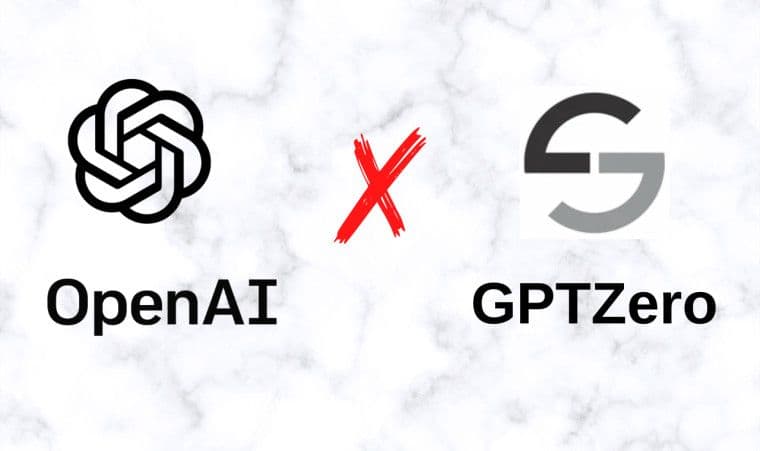Teachers who are concerned with the growing trend of students using ChatGPT to write their essays, have likely heard of GPTZero - a tool developed by Edward Tian, a 22-year-old computer science student at Princeton University. Since Tian introduced the tool on January 2nd of this year, he has gained many academic users, who see his tool as the only potential solution to counter ChatGPT related plagiarism on assignments. However, despite the rapid growth of GPTZero, the question remains whether GPTZero is, or can ever be, effective in detecting content that has been written by AI systems, and modified by humans.
For example - the introduction to this article was entirely plagiarized and re-worded by ChatGPT from a NPR article (Bowman, 2023). GPT Zero says that this text is written by a human. This process took under 30 seconds. Luckily, with newer tools like Authoriginal, which abandon the 'detection' approach in favor of a 'prevention' approach, this kind of plagiarism would never have been possible, regardless of how sophisticated AI becomes.
Edward Tian is a student who is currently pursuing a computer science major with a minor in journalism, and created GPTZero during his winter break. According to him, the tool can effectively and efficiently determine whether an essay was authored by ChatGPT or a human, and while this is true, it is only true for text that has not been created by ChatGPT and edited by a human. His motivation for creating the tool stemmed from his desire to combat what he sees as an increase in AI plagiarism. Reports have emerged of students using ChatGPT to pass off AI-written assignments as their own since the language model's release in late November. In a tweet introducing GPTZero, Tian wrote, "there's so much ChatGPT hype going around. is this and that written by AI? we as humans deserve to know!" After releasing his bot online on Jan. 2, Tian has received positive feedback from several teachers who have tested it. They reported experiencing positive results from using the tool.
While Tian's GPTZero is a great use of technology to try and bring into balance the impressive new capabilities that have been made possible by ChatGPT and other AI systems, it is difficult to rely upon as an official tool to make academic determinations. Turnitin is also facing a similar issue with its 'AI detection' algorithm, which functions in a very similar way to GPTZero. Whereas both GPTZero and Turnitin claim to be able to detect AI text accurately, this accuracy is inconsistent, and disappears as students edit their papers, even only slightly.
Some scholars asset that the issue is not with Turnitin or GPTZero's implementation of detection technology, but rather, with the very approach of "detection" itself. Dr. Torrey Trust at UMass Amherst's College of Education, created a publicly available presentation on the topic of AI Text Detectors, describing their functionality, concerns, and efficacy (Trust, 2023). In this presentation, Dr. Trust discusses how these tools "...boast a 97% accuracy rate; but when put to the test, they are not always as accurate as they claim" (Trust, 2023). Dr. Trust further cites how even OpenAI, the creator of ChatGPT, concedes that their own AI text detector "...should not be used as a primary decision-making tool" (Trust, 2023).
When it comes to making academic determinations about a work's authenticity, instructors can't rely on anything less than certainty, and need backup information to support their decision. Anything less than certainty introduces both the real risk of false positive judgements, and judgements in which the data from their AI text detector is not sufficient to determine a work to be plagiarized - even if they know that it is. This puts instructors in a very difficult position, and the response from many instructors has been to try and modify their content in an attempt to make them 'ChatGPT-Proof'. Unfortunately, creating these prompts places a significant amount of additional work on instructors and for a student with even a small amount of preparation, these prompts are just as vulnerable to ChatGPT.
The solution to this problem, it by changing the approach. At Authoriginal, our solution takes a 'prevention' approach, which is more encompassing and efficient than the 'detection' approach, and thus able to be relied upon with certainty in an academic environment. Authoriginal is a simple LTI-integrated chrome extension that completely prevents the use of ChatGPT, AI assistants, and all other forms of plagiarism, including purchased essays which have until now been un-preventable. This approach also serves as a much more significant deterrent from attempted plagiarism, creating an environment where students are focused on honestly engaging with their academic work. Authoriginal does all this while being extremely convenient for students and instructors to use. If you're interested, reach out to us at sales@authoriginal.com, and someone from the team would be happy to set up a demo with you.
Ciations
Bowman, Emma. January 9, 2023. A College Student Created an App that Can Tell if AI Wrote an Essay. NPR, https://www.npr.org/2023/01/09/1147549845/gptzero-ai-chatgpt-edward-tian-plagiarism
Trust, Torrey. April, 2023. AI Text Detectors. https://docs.google.com/presentation/d/1ADoqCSeBFaspv0qqiHqQmsdwazdqLjpASpJTutgmcNU/edit?usp=sharing



